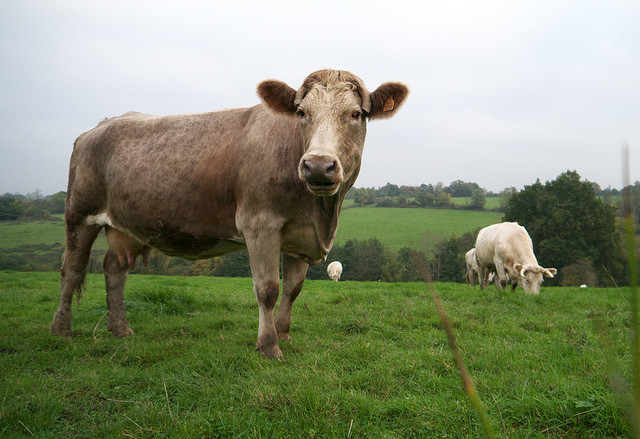Please support our coverage of democratic movements by clicking here to become a monthly supporter of rabble.ca.
Union leaders and activists are keen to engage more members, involve new people and diversify, strengthen and expand the labour movement. Yet, even though many unionized workers care about the well-being of animals, most workers’ organizations have not reflected on how to support their members who are passionate about animal issues, or on how the web of solidarity can be expanded to include animals.
Some labour advocates even dismiss animal issues as frivolous or disconnected from workers’ struggles. But the union mantra that an injury to one is an injury to all is not confined to humans.
In many cases, the same ideas and practices that oppress women and working class people also devalue, commodify and hurt animals. Moreover, unions are missing an opportunity to reach out to more members and progress as organizations, challenging a number of dominant perceptions about organized labour.
The Canadian Federation of Humane Societies calculates that there are about 14 million companion animals (pets) and a staggering 700 million farm animals in Canada alone (and this doesn’t include animals being used in research or wildlife). Animals are an integral part of all societies and they should be incorporated into visions and projects of social justice.
In that spirit, I offer four areas of possibility for workers’ organizations, as a contribution to what should be a larger conversation and action plan.
1. Ensure vegetarian and vegan options are at every union event
Going to a union meeting or action, especially if it is your first one, will become much less pleasant if you are stuck eating nothing but a white bun. Women and men of all classes, ethnicities and fitness levels avoid meat or do not consume any animal products. They may be motivated by ethical, health and/or environmental concerns.
Around five per cent of adults in Canada currently do not eat meat at all and that number is growing, especially among young people who are crucial to the future of the labour movement.
So do not make dietary assumptions about union members, or their family members. Ensure that a non-animal-derived food option is always available. And if you need culinary guidance, why not ask your co-workers and a local restaurant/food co-op/animal organization for suggestions. Doing so is a good way to engage different members, as well as foster local connections, all while creating a more inclusive union.
2. Support organizations that help animals
Most unions are enthusiastic about providing help and resources in their communities. Excellent groups are working to improve animals’ lives, and a number recognize the connections between human and animal well-being. Some already receive workers’ support, but more unions could reach out to animal-focused organizations to find out how to best lend a hand, and to learn more about animal issues.
3. Think about animals’ roles within your union
The first step is to recognize that workers care about animals. Then unions’ democratic processes come into play. Brainstorming will generate ideas based on members’ wishes, the workplaces and the sector. And some workers who were previously un-interested in union activities will become involved.
Are there workplaces where members would like to bargain for the right to have companion animals at work? Are there particularly stressful times of year when the union could enlist the help of therapy dogs to help human workers cope? If animals are already present in the workplace, how could bargaining and other union strategies be used to improve their lives and conditions?
Imagination is a powerful force for change, particularly when accompanied by action.
4. Recognize that animals work too
From the early days of horses providing pulling power and transportation, to the detection work being done around the world today by dogs and even rats, to the unpaid care work done every day by animals providing comfort to humans or trying to raise their own babies, the contributions animals make to our societies and lives are immeasurable.
We ought to be part of a serious, broader conversation about what is owed to all our sisters and brothers in the animal kingdom and about how to build interspecies solidarity.
This includes consideration of what protections animals deserve, how human-centric workplace practices could be improved or changed and how to create a society based on dignity for all.
Currently, some workers are required to harm animals as part of their jobs, while other people toil every day helping animals. Both dimensions offer lessons about the challenges of solidarity across species. But they also reveal the potential and importance of sustaining and creating what I call humane jobs — jobs which are good for people and for animals.
Surely that is the most inspiring and desirable interspecies work of all.
Kendra Coulter is a professor in the Centre for Labour Studies at Brock University, home of the unique course “Animals at Work.” Kendra tweets @DrKendraCoulter.
Photo: flickr/David B. Gleason



